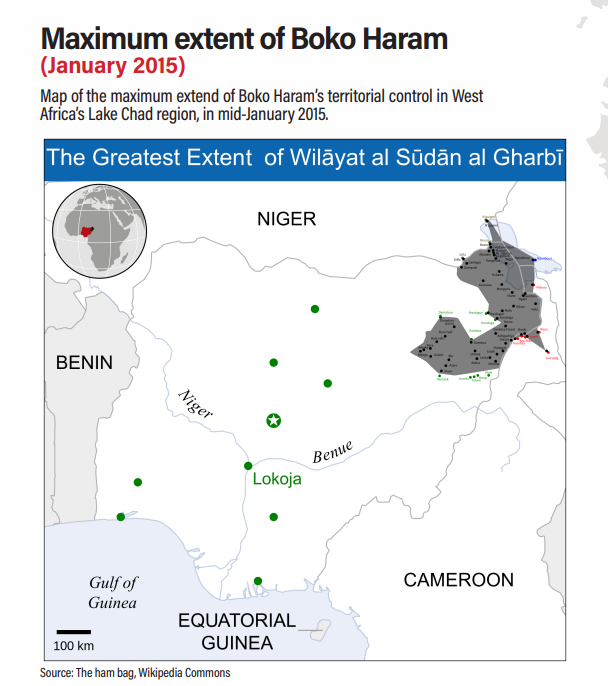In late September and early October 2024, conflict between Israel and armed militias Hamas and Hezbollah intensified after Israeli airstrikes in Beirut, Lebanon, which killed Hassan Nasrallah, the leader of Hezbollah, a Shia militia backed by Iran.
On October 1, 2024, Iran responded with attacks on Israeli military targets in Tel Aviv. While Israel’s defence systems, aided by American interceptors, managed to limit the damage, fears of a broader conflict between Israel and Iran loom, with potential global and regional repercussions.
A recent report by SMB Intelligence shows that for West Africa, the scenario carries essential lessons. Nigeria’s experience with terrorist insurgencies like Boko Haram offers a sobering perspective. The extrajudicial killing of Boko Haram’s founder, Mohammed Yusuf, in 2009 was expected to weaken the group. Instead, it led to the emergence of a more brutal leader, Abubakar Shekau, and escalated violence across Nigeria, Cameroon, Chad, and Niger. Boko Haram‘s structure, much like Hezbollah’s, is decentralised, allowing it to remain resilient even after the loss of key figures.
Leadership Elimination: A Double-Edged Sword
Hezbollah’s decentralised structure, characterised by autonomous cells, mirrors the resilience seen in groups like Boko Haram and Al-Qaeda in the Islamic Maghreb (AQIM). These organisations can continue operations despite leadership losses driven by entrenched ideologies and narratives of martyrdom. The killing of a leader often creates a vacuum that is filled by more radical successors, as was the case with Boko Haram after Yusuf’s death, leading to heightened violence.
This dynamic suggests that while removing a militant leader can offer a temporary strategic advantage, it can also fuel further instability. Hezbollah’s ability to adapt to Nasrallah’s death could mirror Boko Haram’s resurgence under Shekau, potentially leading to more intense violence and recruitment efforts.

Regional Repercussions: The Threat to West Africa
The Israel-Iran conflict could embolden jihadist groups in West Africa. Groups like Boko Haram, AQIM, and the Islamic State West Africa Province (ISWAP) often align with global terror narratives that depict the West and its allies, such as Israel, as adversaries. These groups may use the ongoing conflict to intensify recruitment and justify their actions as part of a broader struggle against perceived enemies of Islam. The rhetoric surrounding the Middle Eastern conflict could become a rallying point for terrorists, fostering a transnational network that links movements across Africa and the Middle East.
Moreover, the crisis could impact the flow of arms and funding to these groups. Existing weapons trafficking routes through conflict zones like Libya could become more active, providing access to sophisticated weaponry. Financial support from Middle Eastern actors sympathetic to anti-Israeli sentiments may further bolster the capabilities of West African insurgents, threatening regional stability.
Solutions for Stability
Addressing these challenges requires a multifaceted approach:
- Strengthening Regional Security Cooperation: To combat the spread of extremism, West African nations must enhance intelligence-sharing and collaborate on counterterrorism measures.
- Investing in Local Refining Capacities: To reduce economic vulnerability to global oil price fluctuations, countries like Nigeria should expand local refining capacities, lessening dependence on imported fuel.
- Diplomatic Engagement: West African leaders should advocate for de-escalation in the Middle East by engaging with global powers like China and the European Union, promoting dialogue for regional stability.
- Building Economic Resilience: Implementing policies that diversify energy sources, such as solar and wind power, can reduce reliance on oil imports, strengthening economic resilience against global market shocks.
These strategies can help West African countries navigate the ripple effects of global conflicts, ensuring regional stability and economic security.


